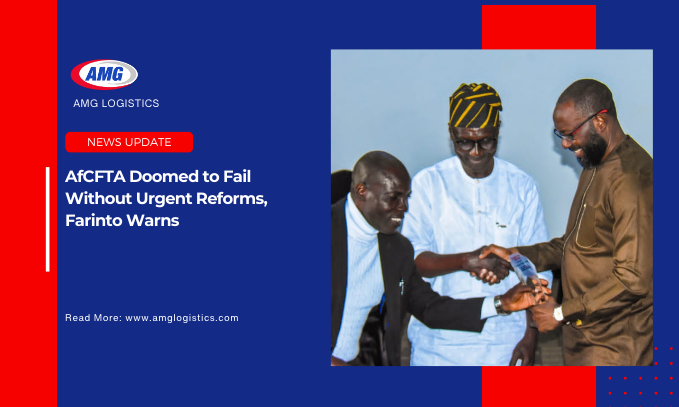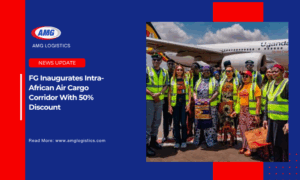A former acting President of the Association of Nigeria Licensed Customs Agents (ANLCA), Dr. Kayode Farinto, has lamented the numerous obstacles stalling the successful implementation of the African Continental Free Trade Area (AfCFTA), criticizing the Nigerian government for its failure to tackle key issues that threaten the trade agreement’s viability.
Speaking at the MARAN Annual Maritime Lecture last Thursday, Farinto blasted the government’s tendency to conceal vital information about the challenges facing AfCFTA, labeling it a major hindrance to the initiative’s success.
Farinto pointed at the controversy surrounding Nigeria’s inaugural AfCFTA shipment on July 16, 2024, noting that despite government assurances, significant issues were swept under the rug. He condemned the attempt to downplay the shipment’s complications, where Mr. Segun Olutayo, leader of AfCFTA Nigeria’s Enablement Coordination, suggested that receiving the certificate of origin was only a preliminary step and did not necessarily indicate successful shipment.
Farinto argued that the Nigerian government’s failure to provide accurate and transparent information has eroded trust and hindered the ability to resolve problems promptly.
He emphasized that the Nigerian government must stop hiding behind misleading narratives and embrace transparency.
According to Farinto, the concealment of issues prevents stakeholders from contributing meaningful solutions, and failure to openly address challenges undermines the success of the AfCFTA.
“The issue is not that things go wrong, but that we continue to pretend that all is well. This attitude of hiding the truth only makes things worse,” he remarked.
Farinto also expressed concern over the Nigeria Customs Service (NCS), which he believes must play a central role in AfCFTA’s success. While he acknowledged the NCS’s recent commitment to trade facilitation, he criticized the agency for its previous lack of focus in this area. He pointed to a circular recently issued to NCS officers aimed at streamlining trade procedures and ensuring compliance, but argued that the agency must go further by implementing strict sanctions for non-compliance among officers. “If the NCS does not get its act together, it will be one of the major reasons why AfCFTA fails,” Farinto warned.
Logistics management, another critical area of concern, was also highlighted by Farinto. He stressed the need for Nigeria to adopt a multi-modal transport system, as the over-reliance on road transportation has created bottlenecks that hinder the flow of goods and services. Farinto urged the Ministry of Blue Economy to collaborate with the Ministry of Trade to ensure proper rail and barge connectivity, which would alleviate pressure on roads and enhance trade efficiency. He suggested that failure to improve logistics infrastructure would undermine Nigeria’s competitiveness within the AfCFTA framework.
Dr Farinto did not spare the country’s regulatory environment either, pointing out that both tariff and non-tariff barriers continue to plague Nigerian trade. He criticized federal agencies like SON and NAFDAC for imposing multiple fees on goods, including import permits and examination costs, which drive up trade expenses and deter investment. These barriers, Farinto argued, act as a major deterrent to the success of AfCFTA, making it more difficult for Nigerian businesses to compete effectively in the African market.
In his concluding remarks, Farinto called for immediate action to address these systemic issues. He warned that unless Nigeria takes decisive steps to remove barriers, streamline logistics, and embrace transparency, the promises of AfCFTA will remain unfulfilled, and the country will continue to miss out on the economic benefits of a free trade area that is vital for Africa’s future growth.





